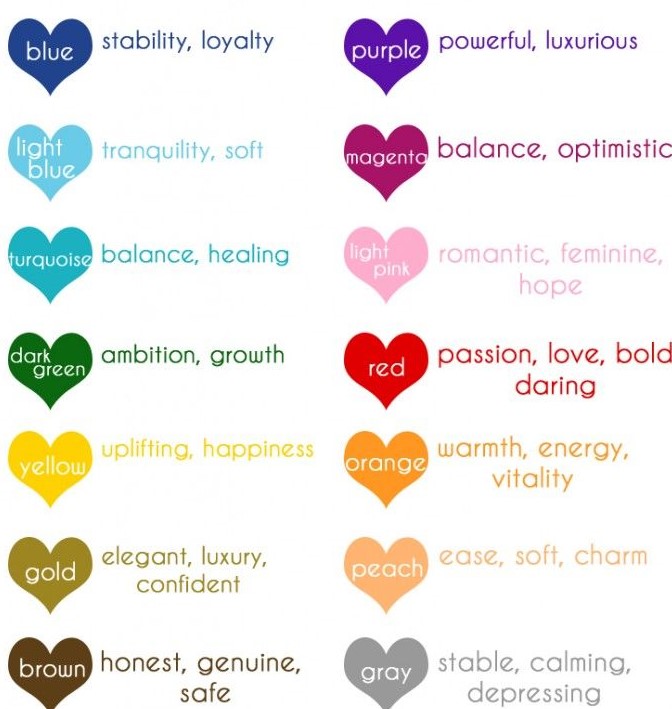Understanding The Meaning Behind Heart Colors
In today's digital age, emojis have become an integral part of how we communicate. Among these, the heart emoji stands out for its versatility and emotional depth. Each color heart carries a unique significance, conveying specific feelings and sentiments that go beyond mere text. As we navigate through our daily interactions on social media and messaging platforms, understanding what each color heart means can enrich our conversations and help us express ourselves more effectively. This article delves into the meanings behind different heart colors, providing insights into their emotional implications.
From the classic red heart to the more contemporary blue heart, each hue symbolizes distinct emotions. Whether you're trying to convey love, friendship, sympathy, or even a playful spirit, the heart emoji can be your best ally. In this exploration, we will uncover the emotional layers embedded in each color, offering clarity on how to use them appropriately in various contexts.
Join us as we embark on a colorful journey through the world of heart emojis! By the end, you'll have a comprehensive understanding of what each color heart means, enabling you to communicate your feelings more precisely and thoughtfully.
What Does the Red Heart Symbolize?
The red heart is perhaps the most widely recognized symbol of love and passion. When you send a red heart, you are often expressing deep affection, romantic feelings, or intense emotions. It signifies a strong connection with someone, whether it’s a partner, family member, or close friend. This color heart is typically used in the following contexts:
- Romantic relationships
- Significant life events (like anniversaries)
- Expressions of deep friendship
- Support during hard times
What Does the Orange Heart Represent?
The orange heart is a vibrant and warm symbol that embodies friendship, enthusiasm, and positivity. It is often used to convey feelings of care and support, especially among friends. This heart color can also hint at a budding romance or a playful spirit, making it a versatile choice for various situations.
How About the Yellow Heart?
Yellow hearts radiate joy and happiness. They represent platonic love, friendship, and happiness. Sending a yellow heart can signify that you appreciate someone’s presence in your life, or that you cherish the joyful moments you share together. This color is perfect for expressing gratitude or celebrating good times.
What Does the Green Heart Mean?
The green heart is often associated with nature, health, and tranquility. It can symbolize growth, harmony, and balance. In certain contexts, it may also denote envy or jealousy, but more commonly, it is used to express a strong connection to the environment or a love for nature. Here are some typical uses of the green heart:
- Support for environmental causes
- Expressions of compassion
- Friendship with a hint of jealousy
What About the Blue Heart?
The blue heart is a symbol of trust, loyalty, and stability. It is often associated with emotional depth and calmness. When you send a blue heart, you might be expressing feelings of loyalty toward a friend or partner, or showcasing a sense of serenity and peace. This heart is commonly used in relationships to indicate a strong bond built on trust.
What Does the Purple Heart Signify?
The purple heart is often associated with luxury, creativity, and spirituality. It can represent a deep emotional connection or convey feelings of love that are more complex than simple affection. This color heart is often used in romantic contexts, but it can also express support for artistic endeavors or convey a sense of mystery.
What Does the Black Heart Mean?
The black heart is often associated with grief, loss, or even dark humor. It can signify a deep sense of sorrow or mourning, but it can also be used in a lighthearted manner to convey sarcasm or a playful attitude toward darker themes. It’s important to consider the context when using a black heart, as it can evoke strong emotions.
What is the Meaning of the White Heart?
The white heart symbolizes purity, innocence, and new beginnings. It can represent a fresh start in a relationship or a deep understanding between friends. This heart color is often used in contexts that emphasize honesty, loyalty, and the beauty of simplicity.
What Does the Brown Heart Represent?
The brown heart is a less common color that signifies stability, reliability, and comfort. It can represent a deep, earthy love and is often used in contexts related to family and close friendships. This heart is perfect for expressing appreciation for someone who provides a sense of grounding and support in your life.
How to Use Heart Emojis Effectively?
Understanding what each color heart means is crucial for effective communication. Here are some tips on using heart emojis appropriately:
- Consider the context: Make sure the heart color aligns with the message you want to convey.
- Know your audience: Different people may interpret heart colors differently based on their experiences.
- Combine colors: You can use multiple heart colors to express complex emotions.
- Stay authentic: Use heart emojis that genuinely reflect your feelings.
Can Heart Colors Change Over Time?
Yes, the meanings of heart colors can evolve based on cultural shifts and personal experiences. What each color heart means can vary based on individual interpretations and the context in which they are used. It’s essential to stay aware of these changes to ensure your messages remain relevant and accurately convey your feelings.
Conclusion: Why Understanding Heart Colors Matters?
In conclusion, the heart emoji is a powerful tool for communication in the digital landscape. Understanding what each color heart means helps you connect with others more meaningfully. By selecting the appropriate heart color, you can express your feelings authentically, whether it’s love, friendship, or support. So, the next time you send a heart emoji, take a moment to consider the message you want to convey and choose wisely!
Article Recommendations


